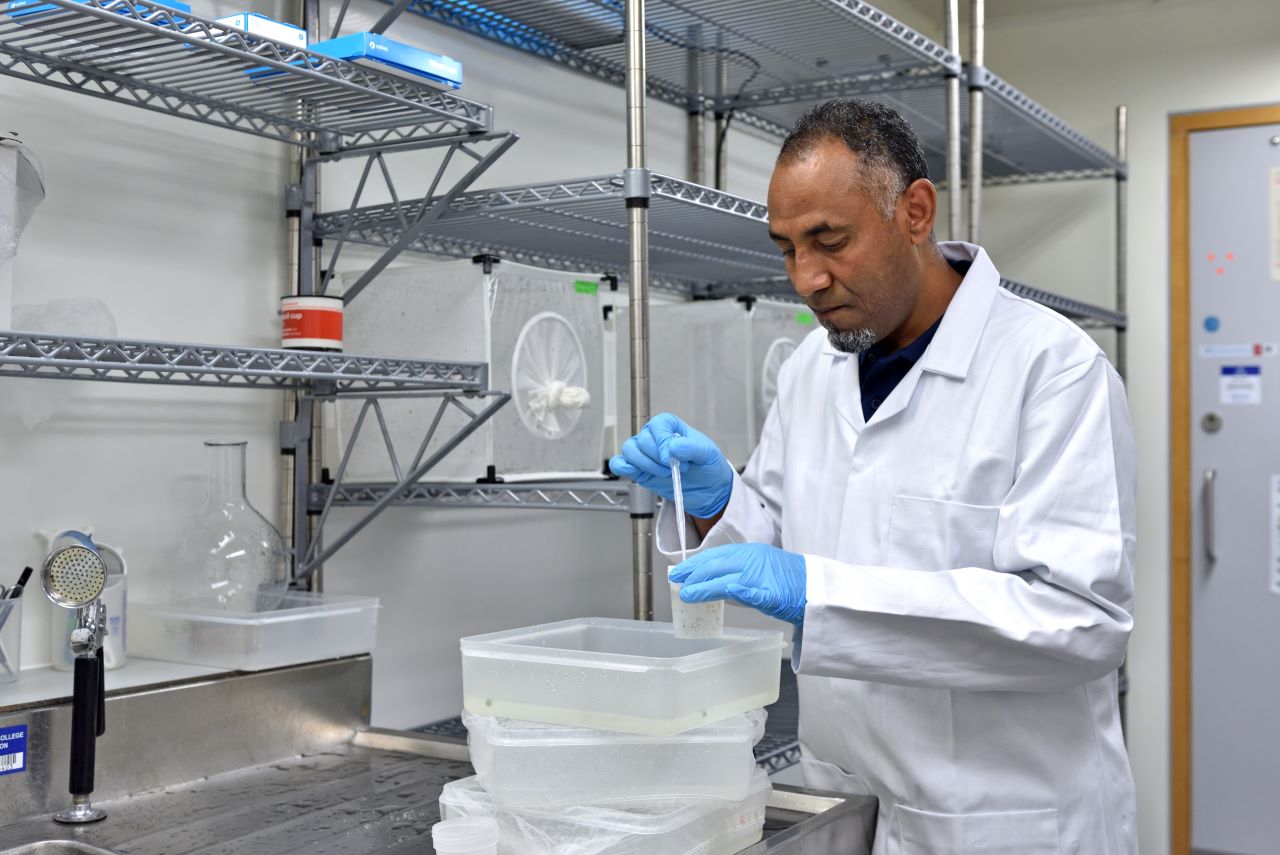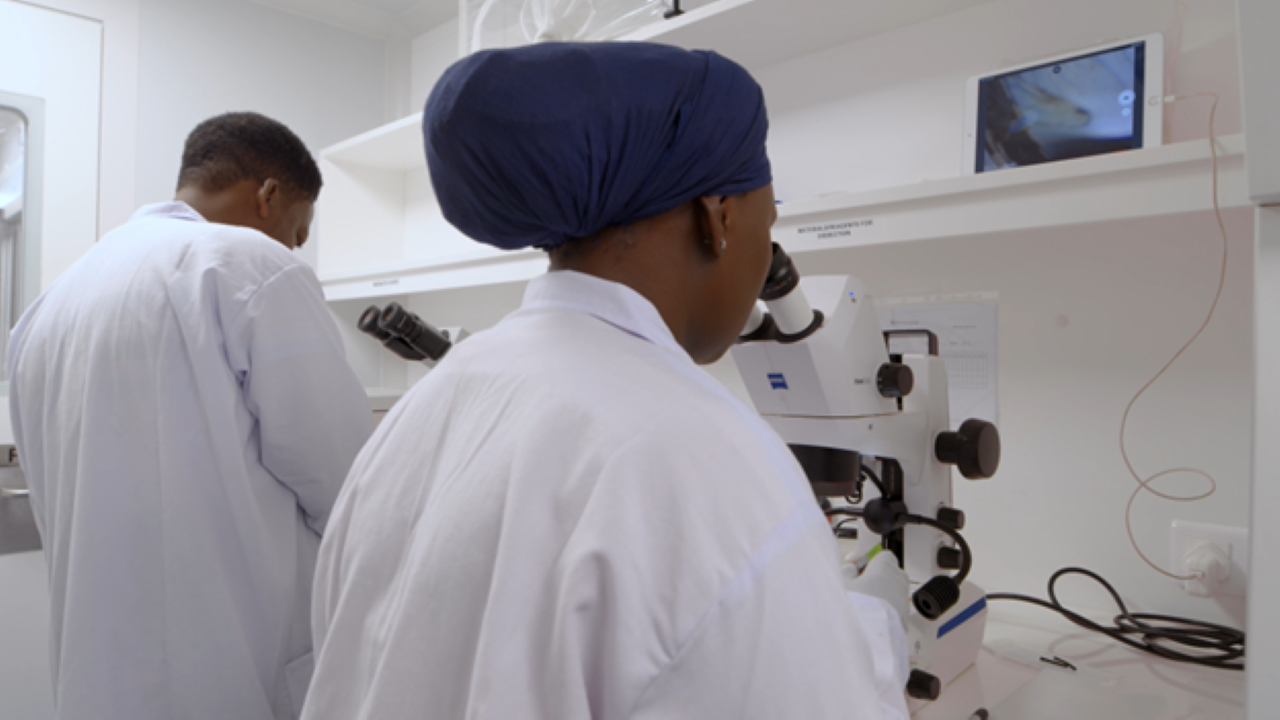On March 6, health ministers from African countries with the highest burden of malaria met in Yaoundé, Cameroon, and signed a declaration committing to the fundamental principle “that no one should die from malaria.”
La Declaration for Accelerated Malaria Mortality Reduction in Africa signals a unified commitment to achieving a future free from malaria deaths on the continent. Despite advances made in the fight against the disease over the last two decades, the World Health Organization (WHO) African Region still accounts for over 90% of malaria cases and deaths worldwide. The 11 signatory countries to the document, which are classified as High burden High Impact (HBHI) countries — and include the United Republic of Tanzania, where I live and work — account alone for 70% of the global malaria burden.

Research Technician Temesgen M Kebede, Transmission Zero, rearing malaria mosquitoes in the laboratory. Photograph: Transmission Zero
The declaration underscores the urgency of addressing several emerging and persistent challenges hindering progress in the fight against malaria, such as inadequate funding, growing biological threats — including insecticide and drug resistance — as well as low access to and insufficient quality of health services. It outlines a comprehensive plan built on four pillars: stronger political will, data-driven strategies, best practices in action, and multisectoral collaboration.
Central to the Yaoundé Declaration is Point 6, which emphasizes the pivotal role of research and innovation in the quest to end malaria deaths. The fight against malaria requires constant adaptation, and this declaration acknowledges the importance of developing new tools and technologies specifically tailored to the high-burden African context.
The focus on research and innovation aligns perfectly with our work at Transmission Zero. Our international research programme — that brings together collaborators from several institutions in Tanzania, the United Kingdom and Switzerland — is working to develop new genetic technologies which could reduce malaria transmission by disrupting mosquitoes’ ability to transmit the malaria parasite to humans. If proven safe and effective, this approach could complement existing tools to achieve the vision of a world free from malaria.

Researchers at work in the laboratory at the Ifakara Health Institute. Photograph: Transmission Zero
The Yaoundé Declaration’s call for cross-border collaboration echoes the interconnected nature of health challenges, transcending geographical boundaries in the fight against malaria. By fostering synergies across malaria-endemic regions, African nations can leverage collective expertise and resources to drive progress. Moreover, the declaration stands as a testament to the collective will of African nations to confront one of the most enduring health challenges of our time. Rooted in several international resolutions and regional frameworks, it acknowledges the progress made thus far while confronting the stark reality of a stalled momentum in the fight against malaria.
It was signed during the Yaoundé conference, co-hosted by the World Health Organization (WHO) and the Government of Cameroon. The conference was attended by Ministers of Health, global malaria partners, funding agencies, scientists, civil society organizations, and others.
